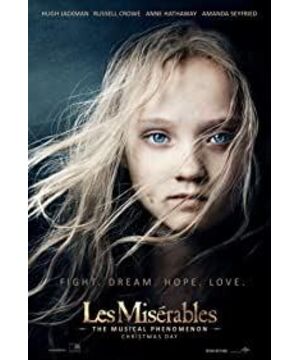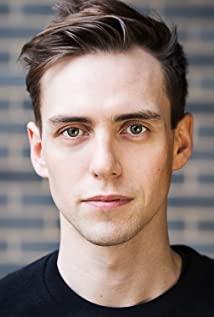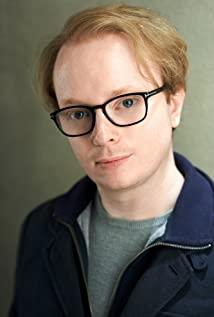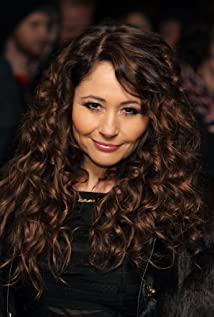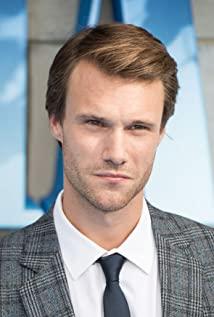This is a real spiritual learning. It happens that I don’t have any memories of the past, and I don’t impose any understanding of the development of the story for myself, and I am not a fan of any of the actors in this film. His heart is like a completely new life, so curious about himself and so focused.
Movies are just a way of expression of stories. I watched stories. In this story, I saw myself, you, him, her, and each of us.
At the beginning of the film, the lyrics are repeated: look down, look down. The translation of the subtitles is: look down, look down. Have you ever wondered where are we looking, and where is the so-called "down"? In the middle of the film, Jean valjean also repeated a line of lyrics: who am I? who am I?, have you ever thought about this, I have asked myself this sentence, or, have been asking myself or toward an unknown force in my heart Asked: who am I?
1. A divided world-the formation of a miserable world
When poor people stretched out their hands behind the iron gate, struggling to touch the outside world, looking at the people outside the iron gate with resentment, and singing angrily: look down, look down, I suddenly wanted to ask, what exactly What created this bounded world? What separates us who came to this world? Are we really so different from each other? What brings the definition and difference between men, women, poor, rich, French, British, good and bad? What allows so many classes, types, and differences to be created in this world? Is it really the so-called God? Fate? I remember that I was deeply attracted by the eyes of the poor in the film, because I found all the so-called boundaries, destiny is in the eyes of people, and then I look into these thousands of pairs of eyes, that's it. A world "fabricated" in everyone's heart. Regarding the "fabrication" instead of the "creation" here, I will explain it later. The poor project resentment at the rich, complaining to the heavens about this injustice, so while there are all kinds of behaviors at the moment, the poor also limit themselves, and the poor become poorer, because he fabricated a poor world with resentment, in this world There is no love, only injustice, plunder, disease, and pain.
2. The recasting of the tragic world-the power of breaking the mirror to reconcile
this story. Without a person, all the following plots would not be able to develop. This person is the priest, but who is the priest? What kind of person is it? Please don't use the definition to know the word priest. The priest is each of us and the familiar brother of each of us. When Jean Valjean was in exile, he was spurned and disgusted everywhere, and almost desperate, the priest took him to a warm place, gave him food and stayed with him. I believe Jean Valjean must be suspicious. His 19-year prison life was distorted. His beliefs taught him to continue to use the wrong way to consolidate his wrong beliefs. People are always afraid of losing their sense of security, even if the truth of this sense of security is insecure. So he stole. When the soldiers took him back to the priest and asked the priest to condemn him, the priest's behavior may be incredible, because he said something that seemed to be crazy to ordinary people, and the priest admitted that these stolen things were I gave it to myself and said that Jean had already told the truth, calling Jean to be his brother, asking him to take away the most precious things (two candlesticks) that he had forgotten, and telling him to use these precious things well.
If most of us really encounter something that repays our virtue with grievance, how would we usually deal with it? First, we will come up with our own principles of life, make a judgment on the matter, and then distinguish that the other party is a person who does not know good or bad (draw a line with ourselves), and then start to criticize and criticize, and even do the same thing in order to retaliate against the other party. I'm not grateful. And while doing so, have we reviewed what we have gained? First of all, this kind of reaction denies the original so-called "virtue", that is, virtue, which naturally has the power of forgiveness and does not ask for anything in return. Why do you immediately suffer so much from the so-called "resent behavior" by the other party dissatisfied? Second, we have ever thought that the other party is our brother in this world. With the anger and accusation you project at him, he will no longer see his own reality. You have drawn a clear line between yourself and your brother. You have also restricted your life from now on. So there are good people and bad people, but have you really thought about it? who am I? Are we really different? Or maybe we came to this world to reunite with our brothers, to see ourselves clearly to see each other, to repair this "tragic world" full of boundaries and conflicts?
The "reality" that the priest said should be the "reality" of the other person he saw, that is, Jean Vajean's answer to who am I, who kept asking himself afterwards. Because the priest pointed out this reality, Jean was able to break through. , He is no longer bound by his past false beliefs, and has completely become a "new person". More appropriately, he bravely stepped forward towards his complete reality. And what is the force that makes him repair himself? It's not resentment, spurning, or contempt, or scolding, or punishment, but forgiveness.
3. False beliefs
Before Javier jumped into the river to commit suicide, he was pacing on the narrow beam in the dark. His world was greatly impacted. He has always upheld justice. He has a firm belief, but why did his world collapse so fast? ? First, why can he never let Jean Vajean go? Is there a feeling of deja vu in life? An inexplicable person with no blood breaks into your life and can't get a break from now on? I remember that Javier said a word in a confrontation with Jean. He was born in prison and grew up in Jean-like scum. It is not Jean that he wants to destroy, but his own childhood that he can't face correctly. He thinks that he can be freed by destroying Jean. Maybe he didn't even realize this, but his body has already chased him. The instruction to kill, he wanted to destroy himself from the very beginning. Many people have their own "principles" and "beliefs". We have adhered to them for a long time. Everything, work, family, dress, friends, and behaviors, are always around such "principles" and "beliefs", but whether Feeling familiar with Javier? Is the pain and trouble he experienced also experienced by you? So, under such pain and distress, have you ever suspected, like Javier, that his "principles" and "beliefs" were wrong, which led to all kinds of confusion and pain in his current situation? Perhaps you have never even had the courage to doubt, because your consciousness will actively avoid such critical issues and make you look for other scapegoats, such as a negative environment, a misunderstanding spouse, and a perfidious friend. These scapegoats are to you what Jean is to Javier, but finding these lambs will not increase your happiness and happiness at all, nor will it help alleviate your pain and confusion.
In fact, Javier is very close to his own reality. He has realized that all this is incorrect and his heart has created a world of very high fidelity illusions. He has begun to doubt whether all his past actions are correct. It's just that the ego, who has accepted the false beliefs for a lifetime, cannot accept the denial and abandonment like this, and eventually takes Javier's body away and throws it into the river for destruction.
4. Desire-the origin of pain
We all have desires. Marius saw Cosette. That beautiful moment filled his heart with "love". We might be wondering, doesn't love make people full of joy and happiness? Why is Marius so painful? Have you ever seen a flower that is amazing for it? At that moment you are full of love, and your heart is filled with joy and fragrance, but will you miss its beauty afterwards? Constantly remembering, and finally suffering for not being able to get it?
5. The "fabricated" love
I don't think Eponine 's love for Marius is true. The on my own part that Eponine sings in the rain tells the truth. That kind of love seems very beautiful and selfless, but in fact it is very miserable and selfish, so Eponine can only live in this incomplete "love", suffering torment and desire. She sang: without him the world around me changes the trees are bare and everywhere the streets are full of strangers. Is this the world? Why did she see such a world? Because her heart "fabricated" a "conditional love world", she attached love to a man, so shaky, so exclusive, and in the end she lost, and what she lost was the one she never got. The love, the filming in the film, and the description in the story may give this originally cruel scene a little warm, but the fact that it cannot escape, the fact is in Eponine’s heart, if she is willing to "look down" to see herself Her heart, she will not be confused about the world she "made up".
6. Use war to create war and peace to create peace
The most beautiful melody in the film is the last part of Epilogue, which is also the part when young people are fighting. In order to oppose the conflicts between different classes, young people have built barricades, launched opposition and triggered war; and Jean The music that joined the new crowd after death also repeated this paragraph, but the lyrics are completely different. Before the war, everyone sang "one more day, one day more", thinking that tomorrow, one more day, all conflicts could be resolved in the form of war, but the war failed, causing casualties, fear, resentment, and self-blame , It’s still the same suffering. In the history of mankind, there have always been people who resisted and opposed wars, but why did the wars never end? Because of this resistance, it also contributes to the power of the food being resisted. Just as you restrain your desires, you can accuse them, but you can only become lustful, and finally have to break out through conflict. Epilogue uses the same music, but the lyrics are written like this:
Do you hear the people sing
Lost in the valley of the night?
It is the music of a people
Who are climbing to
the light.
For the wretched of the earth
There is a flame that never
dies.
Even the darkest night will end
And the sun will rise.
They will live again in freedom
In the garden of the Lord.
They
will walk behind the plough-share,
They will put away the sword.
The
chain will be broken
And all men will have their reward. It is
rare to write such a long film review for so long, I just feel that I must write it down, The background of the story of The Miserable World took place in 1815. I wonder if we have thought about whether the world we live in now and the world presented by Hugo at the time are a little different, apart from material advancement and development? Are we a little different from everyone in this story? What the miserable world tells me is not a miserable world. I believe that in the scene presented at the end of the film, we came to this world to reunite with each of our brothers who were originally perfect and in order to be safe (no more conflicts and boundaries in our hearts) , Unfair judgment) Repair this miserable world that is torn apart by our lost hearts.
View more about Les Misérables reviews


